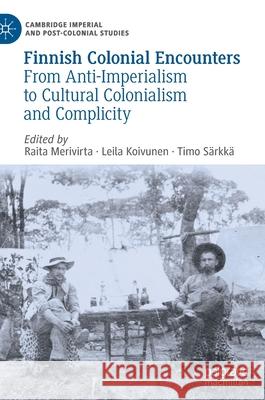Finnish Colonial Encounters: From Anti-Imperialism to Cultural Colonialism and Complicity » książka
topmenu
Finnish Colonial Encounters: From Anti-Imperialism to Cultural Colonialism and Complicity
ISBN-13: 9783030806095 / Angielski / Twarda / 2021 / 358 str.
Finnish Colonial Encounters: From Anti-Imperialism to Cultural Colonialism and Complicity
ISBN-13: 9783030806095 / Angielski / Twarda / 2021 / 358 str.
cena 402,53
(netto: 383,36 VAT: 5%)
Najniższa cena z 30 dni: 385,52
(netto: 383,36 VAT: 5%)
Najniższa cena z 30 dni: 385,52
Termin realizacji zamówienia:
ok. 16-18 dni roboczych.
ok. 16-18 dni roboczych.
Darmowa dostawa!
Kategorie BISAC:
Wydawca:
Palgrave MacMillan
Seria wydawnicza:
Język:
Angielski
ISBN-13:
9783030806095
Rok wydania:
2021
Wydanie:
2021
Numer serii:
000304516
Ilość stron:
358
Waga:
0.62 kg
Wymiary:
21.01 x 14.81 x 2.39
Oprawa:
Twarda
Wolumenów:
01
Dodatkowe informacje:
Wydanie ilustrowane











